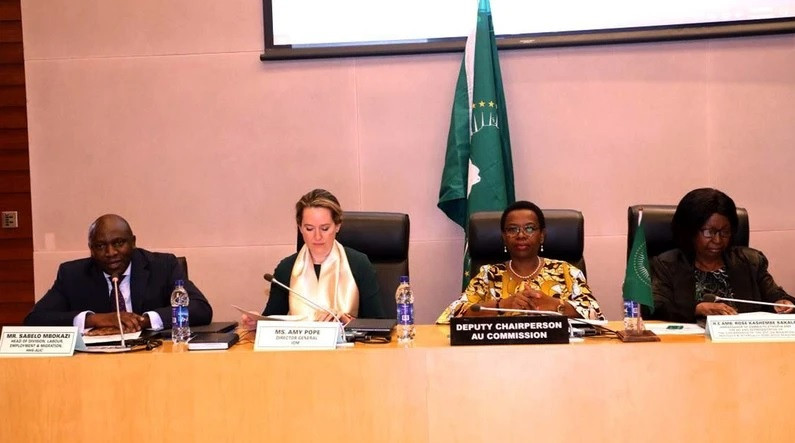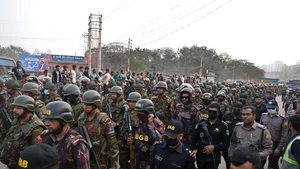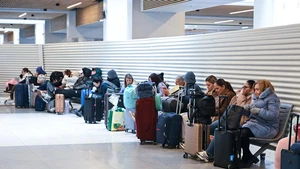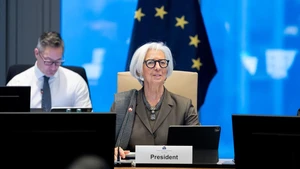In the context of a deeply polarised world on the issue of migration, Africa is increasingly divided due to external influences and different views on international migration management.
The new initiative is an opportunity for Africa to collaborate on a strategy to solve one of the continent's most pressing problems.
The ADi is implemented by the African Union (AU) Commission in coordination with the International Organization for Migration (IOM), African countries, the regional economic community and implementing partners.
This initiative is a platform that brings together members of the diplomatic corps, parliamentarians, and leaders, to discuss policies to shape the management of migrants and migrant workers in Africa.
Speaking at a meeting in the Ethiopian capital Addis Ababa, IOM Director General Amy Pope, called for finding more comprehensive and strategic solutions, as well as introducing humanitarian policies towards African migrants.
She said that regular and managed roads can make migration safer and reduce dangerous illegal migration, improving the ability to identify people entering and transiting or staying in a territory, meeting labour market needs and contributing to sustainable development.
The new initiative has been launched in the context of migration issues playing an important role in global geopolitical and socio-economic discussions.
African countries are also finding solutions to policy issues surrounding the repatriation, reception and reintegration of migrants.
The protection of migrants and repatriated workers, drawing lessons from the experiences of AU member states on migration management policies is also of concern to continental countries.
In addition to the wave of migrants fleeing conflict, Africa is currently experiencing an increase in climate-related migration. Head of the Union of Economic and Social Councils and Similar Institutions of Africa (UCESA), Ahmed Reda Chami cited forecasts of migration trends in Africa showing that, by 2050, about 86 million Africans will migrate within the continent, if drastic action is not taken to reduce the impact of climate change.
The partners participating in the initiative are committed to maintaining ADi to harmonise ideas and support safe, orderly, and humane migration, in solidarity and consensus.
Preventing illegal migration, introducing legal measures against unethical and exploitative behaviour, making migrants a contributing factor to the labour market, and contributing to sustainable development, are problems that need to be resolved.
African countries located in regions with important geopolitical positions bear the responsibility of promoting dialogue on African migration and labour policy perspectives.
In recent years, Africa has witnessed increasingly evolving migration patterns, marking a change in the continent's social life, but also a complex issue with many potential risks.
In addition to the wave of migrants fleeing conflict, Africa is currently experiencing an increase in climate-related migration.
Head of the Union of Economic and Social Councils and Similar Institutions of Africa (UCESA), Ahmed Reda Chami cited forecasts of migration trends in Africa showing that, by 2050, about 86 million Africans will migrate within the continent, if drastic action is not taken to reduce the impact of climate change.
Faced with this risk, managers believed that countries need to exploit the advantages arising from the connection between migration and development, as Africa is striving to realize the goals set out in the 2063 Agenda.
For certain communities, migration has evolved into an important survival strategy, requiring a unified voice in migration management.
The flow of migrants, both those from countries within the continent and those from Africa making the dangerous journey across the Mediterranean, to find the “promised land of Europe”, is a persistent problem, causing headaches for both continents.
Africa's new initiative is expected to help the continent find a common voice and strengthen Africa's position in managing migrants and migrant workers, contributing to finding a solution to the migration problem worldwide.
















